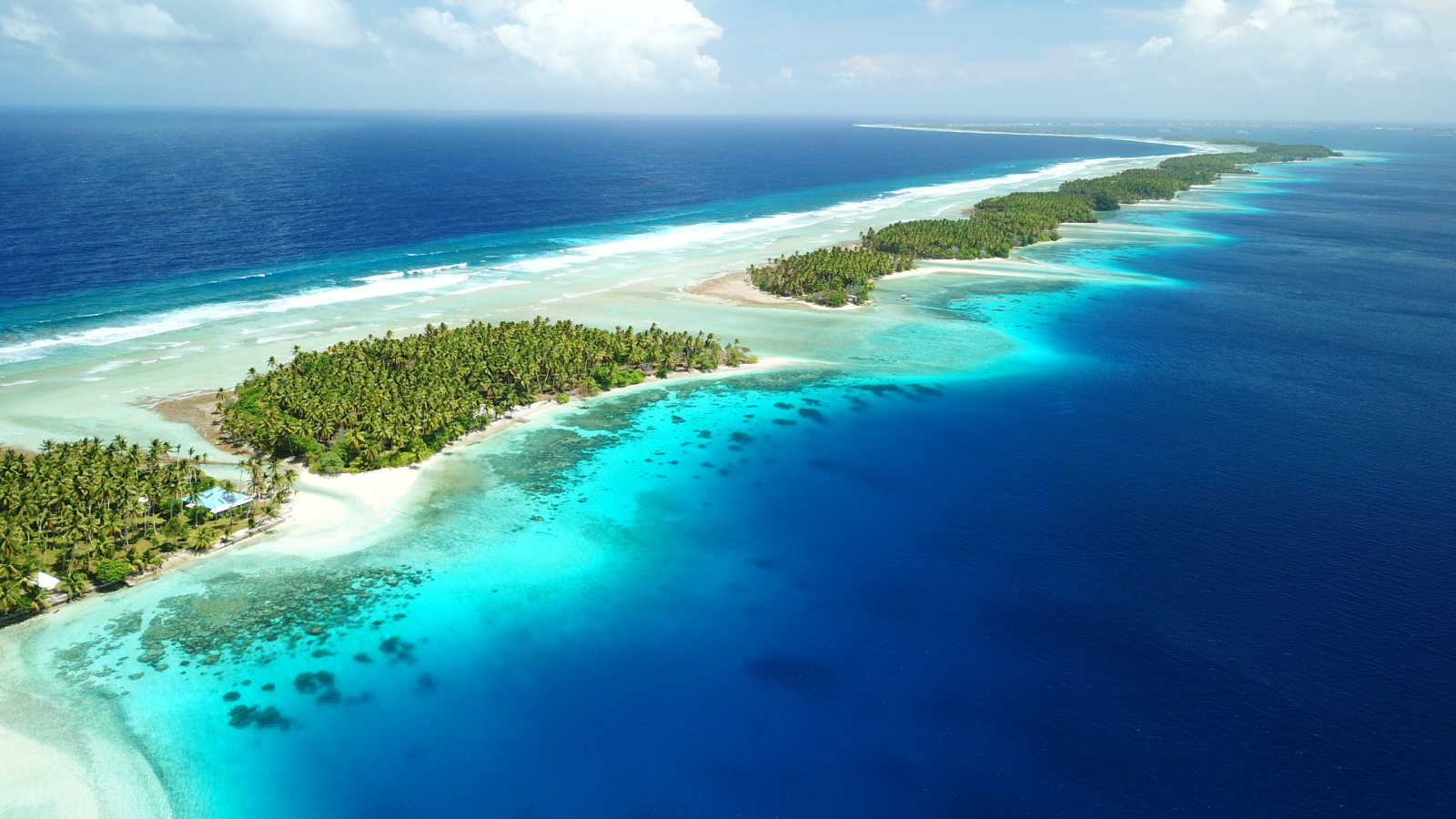
Practical information
In the Pacific, small island developing states want to empower themselves to be great ocean nations. Compared to their number of inhabitants, the Exclusive Economic Zones (EEZ) of island countries such as the Cook Islands (112 km² of EEZ/inhabitant) or the Marshall Islands (33 km²) are much larger than those of countries such as France (0.18 km2) or the UK (0,1 km²).

At the same time, the budget that these countries can devote to the management of their EEZ is much smaller. Marine resources are central to the economies of the Pacific region.
More than 60% of the inhabitants of coastal areas depend on fishing. Such a vital resource must be protected and managed in a sustainable way. In addition, adequate surveillance of EEZ is key to discourage predatory moves and abusive claims by some States.
Marine protected areas (MPAs) offer a solution for countries in the region to manage their maritime space. Access to scientific data is required to set MDA.Their economic impact should also be taken into consideration, as most Pacific countries are heavily dependent on marine resources for their development. “Managing an area” can sometimes imply integral protection of it, but rational and sustainable use of the EEZ is also an option. Finally, local ownership by the population is also key. This webinar brings together Oceanian and European experts and decision makers to understand the many facets of this issue.
This webinar will be held in English, on Zoom.
PROGRAMME:
Chair: Céline Pajon, Coordinator for the Pacific Islands Program, Center for Asian Studies, Ifri
- Steven Victor, Minister, Agriculture, Fisheries, and the Environment, Republic of Palau
- Jérôme Aucan, Head of the Pacific Community Center for Ocean Science (PCCOS), Pacific Community-SPC
- Pierre-Yves Le Meur, Researcher in environmental anthropology and ethnoecology, Research Institute for the Development (IRD) Center in Noumea, New Caledonia
- Karina von Schuckmann, Oceanographer, Mercator Ocean International
Our partner, the Pacific Community (SPC), studies the challenges of MPAs and documents the best methods of management and the knowledge necessary to carry out an integrated management of marine areas.
Replay
Related Subjects
Other events

EV Supply Chains for Japan and Europe: Strengthening Economic Security
Economic security aims to ensure the resilience of supply chains for key industries: the case of electric vehicle production in Japan and Europe will be discussed.

What Kind of Technological Partnership with India?
As India asserts its technological ambitions and seeks to reduce its dependence on China, Europe is stepping up its efforts to diversify its strategic partnerships. What opportunities arise from the convergence of these two dynamics? Can cooperation in cutting-edge sectors—from electric vehicles to artificial intelligence and semiconductors—transform the Indo-European relationship into a lever for strategic autonomy?






